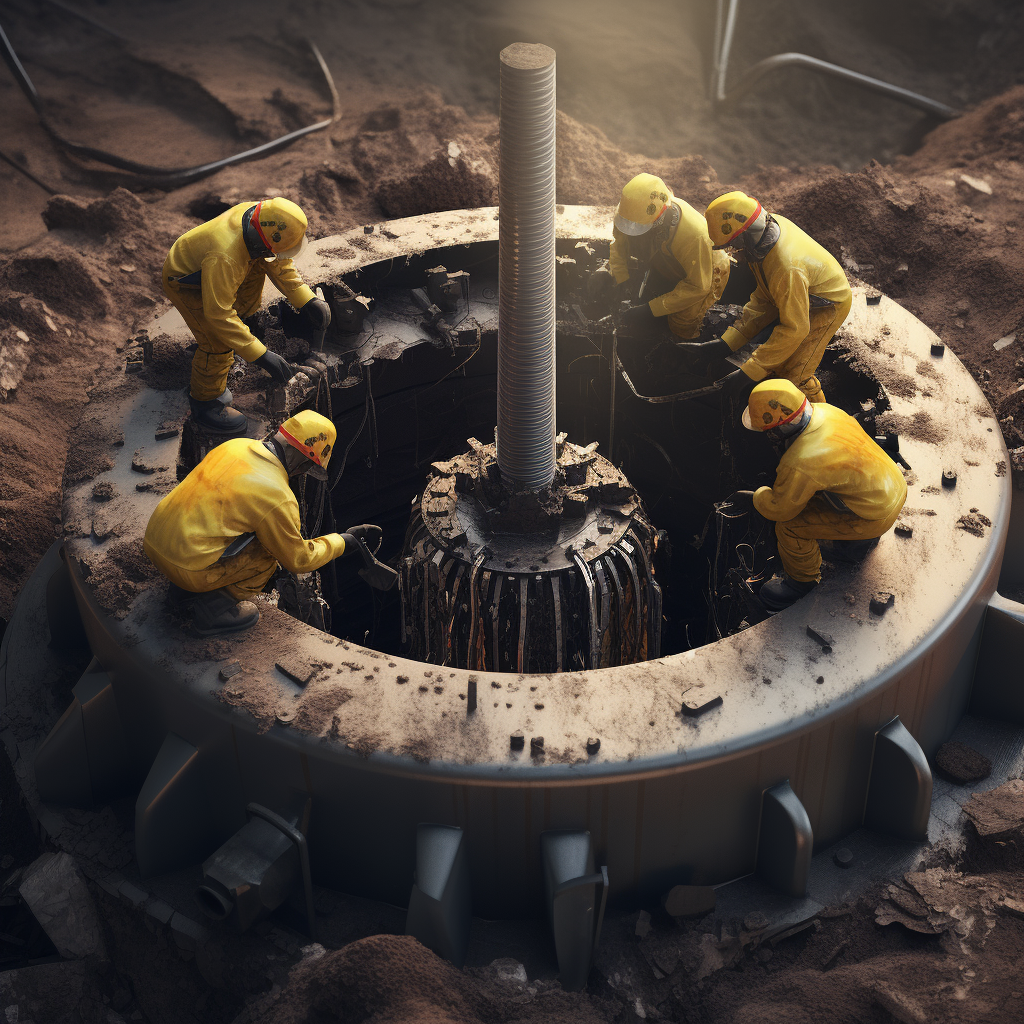
In the realm of nuclear energy, one of the most pressing challenges is the safe and responsible management of nuclear waste. Nuclear waste, often referred to as radioactive waste, is a byproduct of nuclear power generation and other nuclear applications. It contains radioactive materials that must be managed with the utmost care to protect human health and the environment. Here, we present a factual overview of the current methods employed for dealing with nuclear waste.
-
Storage and Interim Solutions:
- On-Site Storage: Many nuclear power plants store their spent fuel on-site in specially designed pools or dry casks. This is considered an interim solution until a permanent disposal method is established.
- Centralized Interim Storage: Some countries are exploring centralized interim storage facilities, where nuclear waste from various sites is stored in a secure location. This can provide more secure and efficient management.
-
Deep Geological Repositories:
- Deep Borehole Disposal: In this method, deep boreholes are drilled into stable geological formations, such as granite, where nuclear waste can be safely stored.
- Yucca Mountain (USA): The Yucca Mountain project in the United States was once a proposed deep geological repository, although its status remains uncertain.
-
Advanced Reprocessing Techniques:
- Nuclear Reprocessing: Reprocessing involves the separation and recycling of valuable fissile materials from nuclear waste, reducing the volume and long-term hazard of waste. However, it is complex and poses proliferation risks.
-
Innovative Research:
- Advanced Reactors: Some next-generation nuclear reactor designs aim to use nuclear waste as fuel, potentially reducing the volume and longevity of waste.
- Transmutation: Research is ongoing into transmutation technologies that can convert long-lived radioactive isotopes into less hazardous forms.
-
International Cooperation:
- International Frameworks: Several international organizations, like the International Atomic Energy Agency (IAEA), work to establish standards and guidelines for the safe management of nuclear waste.
It is essential to emphasize that the management of nuclear waste is a complex and long-term endeavor. The choice of method depends on various factors, including safety, regulatory approval, public acceptance, and available technology. Moreover, ensuring transparency and involving stakeholders are crucial aspects of responsible nuclear waste management.
In conclusion, nuclear waste management is an ongoing scientific and technical challenge. The methods discussed here represent current approaches in use or under consideration. Advancements in technology and international collaboration are vital for finding sustainable solutions to this critical issue, all while maintaining the highest standards of safety and environmental protection.

0 Comments